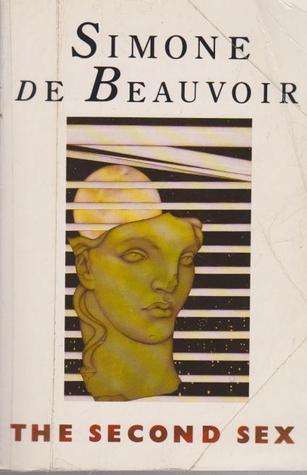
The Second Sex by Simone de Beauvoir (groundbreaking work of feminist philosophy)
Check my rate
| Main centres: | 1-3 business days |
| Regional areas: | 3-4 business days |
| Remote areas: | 3-5 business days |

| Main centres: | 1-3 business days |
| Regional areas: | 3-4 business days |
| Remote areas: | 3-5 business days |
Reading De Beauvoirs seminal feminist manifesto has allowed me to compose my genealogical tree, for The Second Sex is a book about my mother and the mother of my mother and the mother of my grandmother and of all my female ancestors in endless regressive progression who rebelled before obeying and who ended up capitulating like slaves shackled to the indomitable future of preordained inferiority.
Published by Picador, 1988, softcover, index, 762 pages, 13.2 cms x 19.7 cms x 4.6 cms, condition: as new.
Seen as the first landmark in the modern feminist upsurge that has transformed perceptions of the social relationship of man and womankind in our time, this is a novel by Simone de Beauvoir, author of "Le Sang des Autres" and "Les Mandarins" which won the Prix Goncourt.
In The Second Sex, Simone de Beauvoir posed questions many men, and women, had yet to ponder when the book was released in 1953. "One wonders if women still exist, if they will always exist, whether or not it is desirable that they should ...," she says in this comprehensive treatise on women. She weaves together history, philosophy, economics, biology, and a host of other disciplines to show women's place in the world and to postulate on the power of sexuality. This is a powerful piece of writing in a time before "feminism" was even a phrase, much less a movement.
Reading De Beauvoir has put me on the ropes, reminding me of my privileged situation compared to the atrocious and reiterative abuse inflicted upon women, victims of dogmatic fundamentalism or totalitarian governments in most countries of the world: cases of ablation, rape, physical and psychological maltreatment saturate the media, tragic facts that back up De Beauvoirs theory that femininity is neither essence nor destiny but an artificial construction of the cultural, societal and historical requirements of time and place.Reading De Beauvoir has sharpened my feminism, rekindled my empathy and opened my eyes to the impending call to redefine the socio-political, economic and cultural frames of a so-called democracy, which is only de jure and not de facto, and to avoid the postmodernist doctrine of the difference feminism that allots innate and intrinsic qualities to the feminine gender, to establish a collective front that will guarantee new models of egalitarian coexistence for women, inside and outside the public and private spheres.
Reading De Beauvoir has sharpened my feminism, rekindled my empathy and opened my eyes to the impending call to redefine the socio-political, economic and cultural frames of a so-called democracy, which is only de jure and not de facto, and to avoid the postmodernist doctrine of the difference feminism that allots innate and intrinsic qualities to the feminine gender, to establish a collective front that will guarantee new models of egalitarian coexistence for women, inside and outside the public and private spheres.
A collective outcry arises from the underground that joins many others, a dull murmur gathering momentum from those living on the fringes of society: women, immigrants, those of another race, the others, the marginalized, whose voices have been chocked by gratuitous despotism for centuries, start intonating a demand in unison. Dont you hear it? Its the canon of collective indignation roaring to achieve individual emancipation.